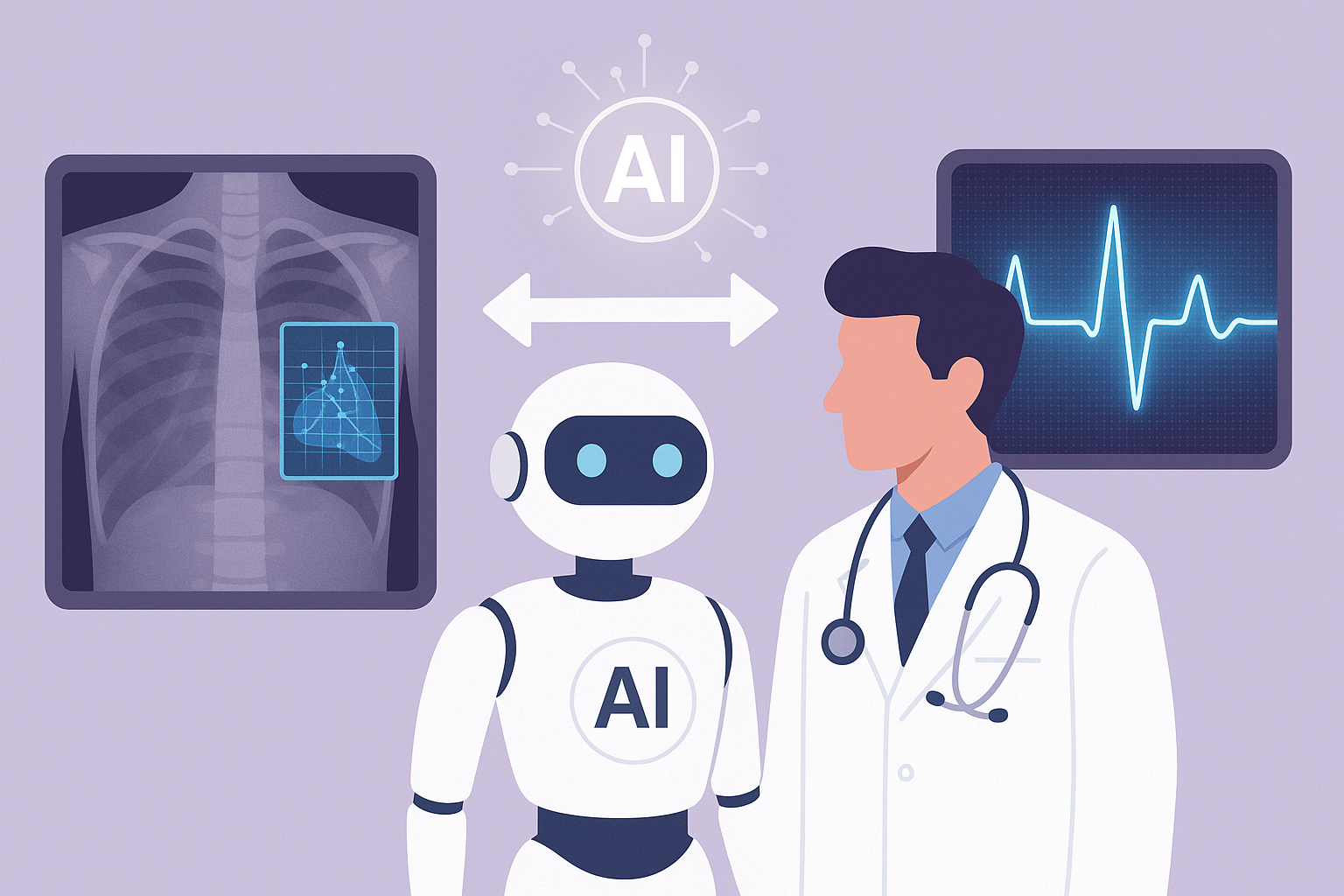AI in Healthcare and Biomedical Applications
This theme explores how artificial intelligence is revolutionizing healthcare and biomedical sciences. From diagnosis and treatment planning to patient monitoring and drug discovery, AI is unlocking new possibilities for precision medicine and smarter health systems. It highlights how data-driven models can analyze medical images, predict disease risks, optimize hospital operations, and personalize therapies. Learners and readers will gain insight into how real-world datasets and AI models are shaping the future of medicine, while also understanding the ethical and practical challenges of implementing these technologies at scale.
“This theme is ideal for computer scientists, biomedical engineers, clinicians, nurses, and healthcare professionals who want to bridge the gap between technical innovation and clinical practice. It encourages interdisciplinary collaboration, aligning AI advances with global initiatives like AI for Good, WHO digital health strategies, and precision medicine programs. The aim is to inspire innovation while maintaining a strong focus on patient safety, human-centered design, and equity in healthcare delivery.”
Healthcare represents one of the most impactful areas of AI application. The rapid growth of medical data—ranging from clinical notes and lab tests to MRI scans and genomic sequences—has created both opportunities and challenges for modern medicine. This theme introduces readers to the principles and techniques of applying machine learning (ML) and deep learning (DL) in clinical, biomedical, and imaging contexts. It covers areas such as: Medical Imaging: AI for detecting cancer, strokes, fractures, and other conditions in X-rays, CT, and MRI scans. Predictive Analytics: Early detection of diseases such as diabetes, sepsis, or heart failure using electronic health records and wearable data. Genomics and Precision Medicine: AI models that analyze DNA to identify disease risks and guide personalized treatment. Drug Discovery and Development: Accelerating research by predicting molecular interactions and testing drug candidates in silico. Hospital and Workflow Optimization: AI-powered systems for triage, patient flow, and resource allocation. Digital Health and Telemedicine: Using chatbots, remote monitoring, and decision-support systems to expand access to care. The theme also highlights the importance of ethics, transparency, and trust in healthcare AI. Topics such as bias in medical datasets, fairness in predictive models, patient privacy, explainability, and regulatory frameworks will be explored in depth.



